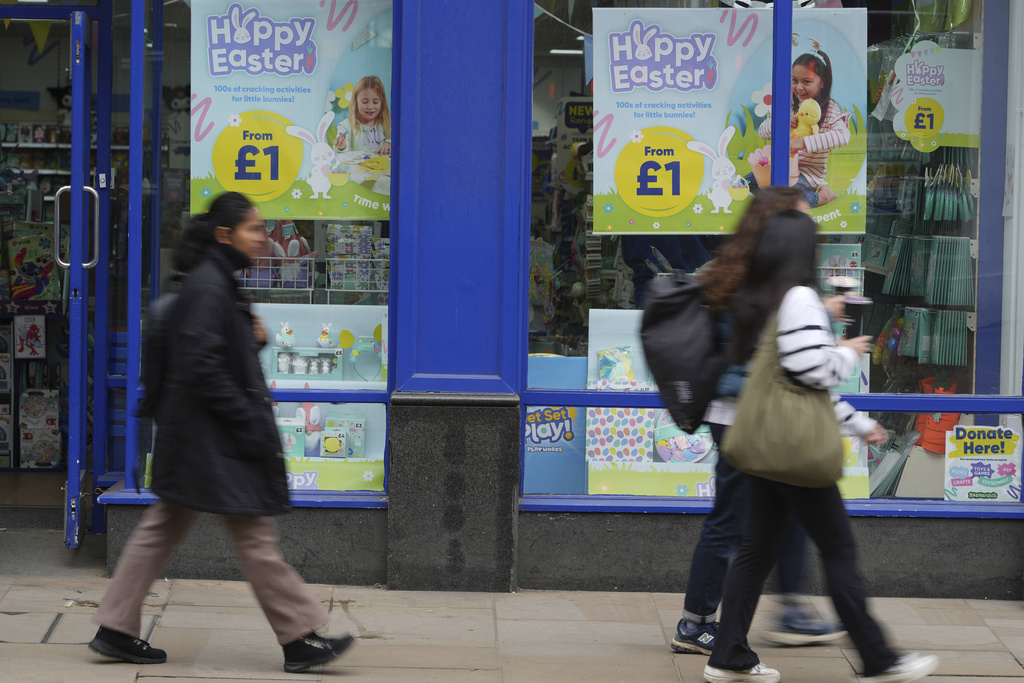
UK inflation unexpectedly rose to its highest level since January 2024 as the Labour government’s budget pushed up grocery bills, keeping pressure on the Bank of England as it looks to dial down interest rates.
Consumer price inflation picked up to 3.6 percent in June from 3.4 percent previously, the Office for National Statistics said on Wednesday. It was above the unchanged reading predicted by economists and the BOE.
BOE Governor Andrew Bailey has signaled that more rate cuts are ahead after sharp falls in employment since the Labour government hit businesses with higher payroll taxes and a minimum wage hike in April.
ALSO READ: UK economy shrinks for second month in fresh blow to Starmer
However, Wednesday’s figures will be a headache for the rate-setters who had expected the recent increases in inflation to be short-lived. The UK central bank had predicted in May that CPI would remain at 3.4 percent throughout the summer before accelerating again in September.
The pound rose 0.2 percent to $1.3414, set to snap a eight day losing run. Traders pared bets on BOE interest rate cuts, and now see 49 basis points of easing by year-end, compared with 53 basis points ahead of the data.
“The economy is clearly still struggling to shake off a period of sticky inflation,” said George Rogers from JP Morgan. “This higher than expected inflation reading doesn’t make the Bank’s job any easier.”
While overall inflation is well above the central bank’s 2 percent target, the BOE has predicted the pick-up will start reversing by the end of the year and is putting more focus on underlying indicators. That’s in part because a recent cooling in the economy — including a weakening in the labor market — is likely to slow the pace of consumer-price increases.
READ MORE: Britain unveils multi-billion spending plan with major boosts for health, defense, housing
However, services inflation — a sign of domestic pressures being watched closely by the BOE — held at 4.7 percent, higher than expected.
Food prices — which are important for household inflation expectations — rose 4.4 percent — the highest since February 2024. Alcoholic drinks and tobacco costs jumped 6.4 percent, up from a 5.4 percent increase in May.
Retailers blamed the recent increases in employment costs announced at Labour’s first budget for fueling food price inflation.
“Despite fierce competition between retailers, the ongoing impact of the last budget and poor harvests caused by the extreme weather have resulted in prices for consumers rising,” said Kris Hamer, director of insight at the British Retail Consortium.
The ONS also said inflation was “driven mainly by motor fuel prices which fell only slightly, compared with a much larger decrease at this time last year.”
ALSO READ: Rachel Reeves prepares for tough UK budget update as growth slows
The recent spike in inflation has been driven by higher energy bills and regulated prices, from water bills to rail fares. In May, the BOE expected inflation to ease by the end of the year before returning to the 2 percent target in early 2027.
The MPC has taken a gradual approach to lowering borrowing costs, concerned about stubborn price pressures in the services sector and a tight labor market. Recent data have suggested that both are now easing with employment falling by more than a quarter of a million since Labour’s first budget in October.


